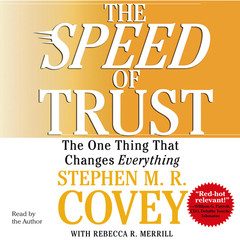Drawn from “Speed of Trust” by Stephen M.R. Covey
The Collier Companies’ Fall 2013 Conference of Champions featured a two day “Speed of Trust” seminar by FranklinCovey
#5 Show Loyalty:
Loyalty is faithfulness or devotion. One of the best ways to demonstrate loyalty is to “speak of others as if they were present.” When we honor folks in their absence, we role model integrity and authentic alignment. When we choose to “bad mouth” people behind their backs, people instinctively know that we are untrustworthy, that we can and will do the same to them.
“The next time you’re in a conversation where people start bad-mouthing someone who’s not there,
consider your options.
You can participate in the discussion.
You can leave.
You can stay, but remain silent.
You can say something positive about the person to try to balance out the conversation.
Or you can say, ‘I really don’t feel comfortable talking about this person like this when he/ she is not here.
If we have a concern, let’s go talk with this person directly.’
Consider what would be the most principled behavior in the situation and do it”
– Stephen M.R. Covey,
“Speed of Trust”
Sometimes the highest form of loyalty to a person requires that we have the courage to speak directly and honestly to them about sensitive matters even (especially) when we would prefer not to do it out of concerns of embarrassment, emotional pain, fear of confrontation, conflict or relationship damage. Once again, balance is key: while frequently the best course is to let bygones be bygones, too much sweeping things under the rug can lead to tripping over lumps in the rug!
Furthermore, loyalty must be balanced, must be true to deeper principles, to the person’s or organization’s long term benefit. True loyalty (to the company, to themselves or to shareholders and other stakeholders) would NOT be for an Enron employee to remain silent about the massive fraud but rather to speak up and to do so loudly. Similarly, we must not close our minds and remain blindly ‘loyal’ to ideas or beliefs that new information shows may be in need of challenge or updating.



0 Comments